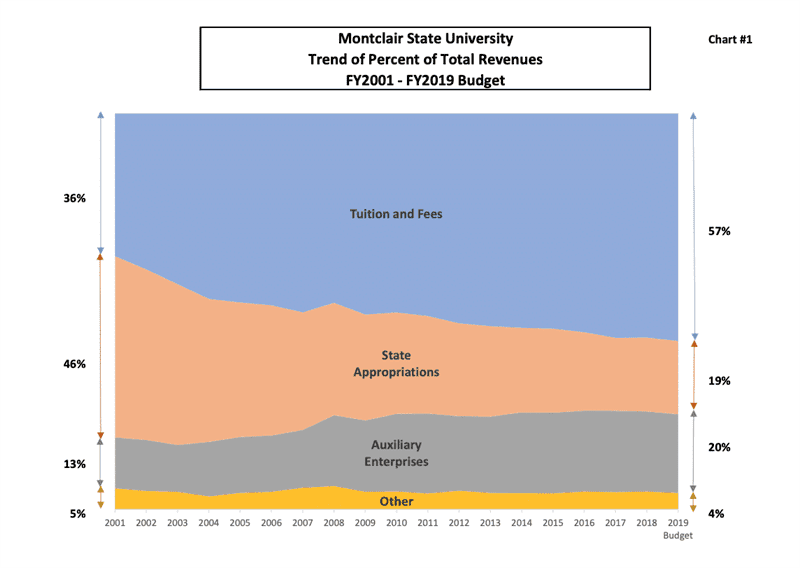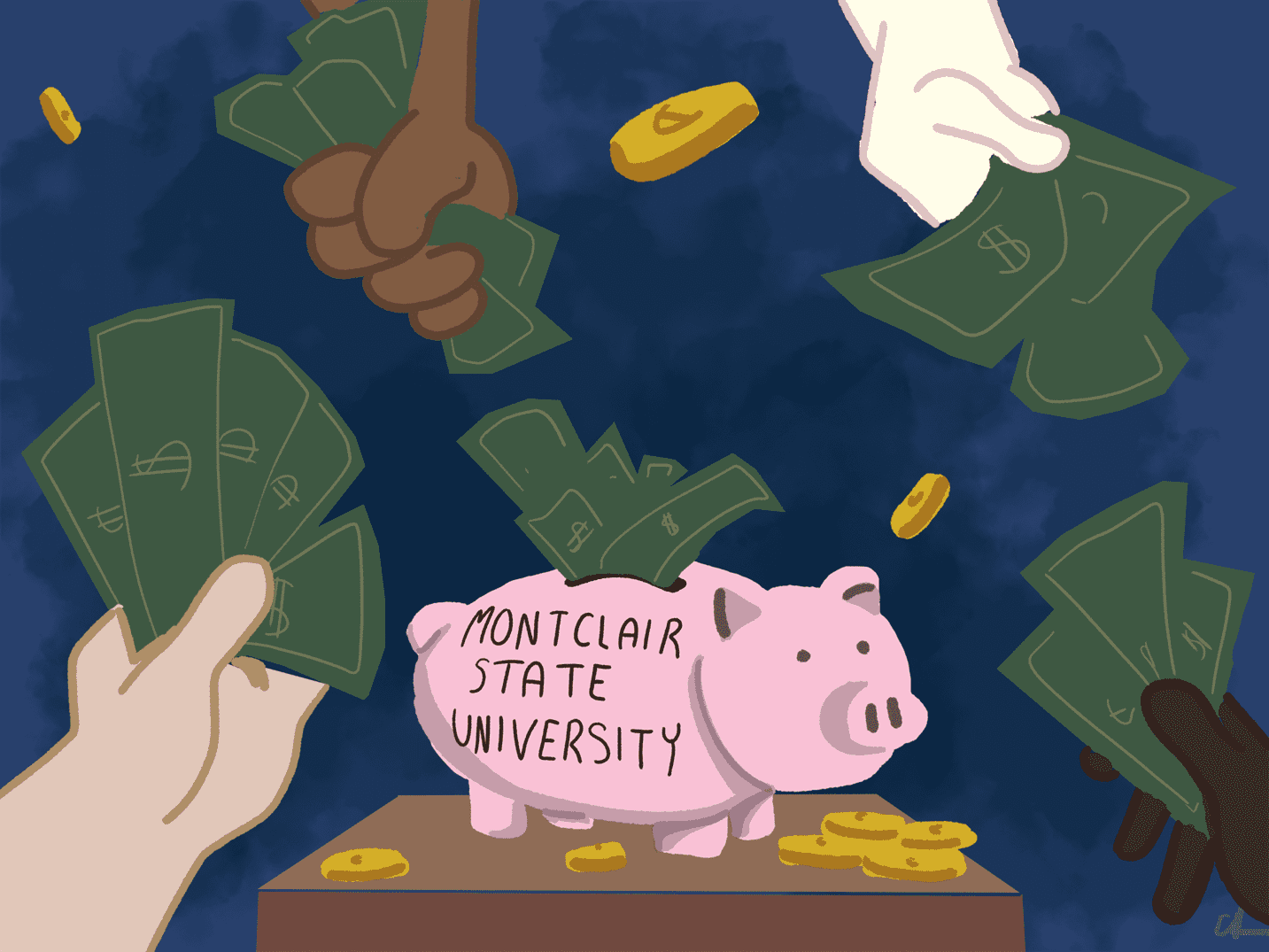Every year when the campus is vacant during the summer, President Susan Cole and the Montclair State University Board of Trustees arrange for a meeting to discuss the state of student annual tuition.
As in previous years, state funding for the university continues to dwindle down, putting the cost of running our educational institution on the backs of the students, many of whom struggle to make that end of summer tuition deadline. What makes it harder for them is the fact that tuition was spiked once again this academic year.
For the 2019-2020 school term, Montclair State tuition for New Jersey residents increased by about $300 and $500 for out-of-state students.
Tuition spikes at Montclair State University http://bit.ly/awOiSV
— The Star-Ledger (@starledger) July 23, 2010
What was not on our semester tuition bill was a statement from the board of where the money is going to, specifically that many of the top administrators, including President Cole, received a pay raise this semester.
So Montclair State raises their tuition by 2% annually after approving a $250k Hawk statue and getting a $20 mil donation @montclairprobs
— Kieferh240 (@Kieferh240) July 24, 2015
According to a statement from the American Federation of Teachers (AFT) Local 1904 and confirmed by a university spokesperson, the board approved a 3.5% raise to multiple university managers including Cole, whose annual salary is now over $600,000.
Montclair State raising tuition: Susan A. Cole, president of Montclair State, said in a statement Thursday night… http://dlvr.it/2xP2X
— Bergen County News (@BergenCtyNews) July 23, 2010
What many students find hard to understand is how the university is able to award these pay raises with no increase in state funding and multiple construction projects. This leads them to think that these raises are coming out of their pockets.

A chart showing the progression of revenue to the university. Chart courtesy of the 2019 Montclair State University Tuition Hearing
Student tuition has continued to increase throughout the decade, covering over half of the university’s total revenue. This means that aside from loans and grants, the majority of projects approved by the board is coming from the students, which places a huge burden on students wanting to receive a higher education.
Even though tuition at Montclair State is not as expensive as other public colleges and universities in New Jersey, 4.7% of students still have defaulted or failed to pay off their student loans.
The Montclair State student body is composed of a diverse community from different upbringings and backgrounds. There are some students who are fortunate enough to pay their tuition bills and not worry about paying every cent back after they graduate, but there are others who are forced to work multiple jobs and register as part-time students in order to pay per credit and afford to sustain themselves.
Just realized Montclair State raised their tuition for this academic year smh
— sway (@Sway_OnThis) August 17, 2017
While these administrators are well deserving of recognition of their hard work, when students find out about the pay raises along with the increasing tuition, it makes them feel disconnected to the school they love. They want to see their tuition go toward things that they too can benefit from.
All of us respect and appreciate the hard work President Cole has done for the university over the past two decades. Without her leadership and support, Montclair State would not have been able to evolve into one of the largest, most prestigious state schools in New Jersey.
We agree that the lack of state funding has severely impacted the way our school runs, but we need to find a way that pays the bills and satisfies the needs of the administration, faculty, staff and of course the students who continue to invest their futures into Montclair State.
All we ask for is more transparency between the administration and the student body. Not many students know what goes on behind closed doors and many of them are unaware of where their tuition is going each semester and the reasons it continues to increase.
If students are concerned about where their money is going, they should attend the Board of Trustees’ public sessions as well as speak up at the annual tuition hearing, which will be held in the spring.



